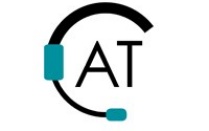Full citation
Ajila, S.A. (2008). The Impact of Knowledge Delivery Factors on New Product Development Teams: A Quantitative Analysis of Software Development Efficiency. International Journal of Product Development, 6(2), 6-6.
Format: Peer-reviewed article
Type: Research — Non-experimental
Experience level of reader: Fundamental
Annotation: Survey of 82 software development companies, showed a correlation between knowledge delivery factors and tea efficiency — that team efficiency could be increased if knowledge is delivered close to the time it is needed within the project.
Setting(s) to which the reported activities/findings are relevant: Large business, Small business (less than 500 employees)
Knowledge user(s) to whom the piece of literature may be relevant: Manufacturers, Researchers
Knowledge user level addressed by the literature: Organization
This article uses the Commercial Devices and Services version of the NtK Model
Primary Findings
Barrier: Survey of 82 software development companies, showed a correlation between knowledge delivery factors and tea efficiency — that team efficiency could be increased if knowledge is delivered close to the time it is needed within the project.
Survey. Information dissemination independent of Context — When knowledge is pushed out to potential users, it is assumed that the knowledge being delivered is useful. Yet, in w real working environment, this assumption is problematic, because it is very difficult to forecast which knowledge will be useful in the future. Broadcasting de-contextualized information to end users is a push approach to dissemination. The push approach can be a barrier to communication by creating information overload among the target audience.
Occurrence of finding within the model: KTA Stage 1, KTA Stage 2, KTA Stage 3
Carrier: Survey of 82 software development companies, showed a correlation between knowledge delivery factors and tea efficiency — that team efficiency could be increased if knowledge is delivered close to the time it is needed within the project.
Survey. Knowledge Transfer in Context — By applying the demand pull approach, new knowledge is generated within the context of the knowledge needs of the target users. Users will know what knowledge they seek, and will take initiatives to to search for such knowledge. In the demand pull approach, there is no gap between learning and working. It is a learning-on-demand approach because what is learned is what is needed to accomplish the work task at hand.
Occurrence of finding within the model: KTA Stage 1, KTA Stage 2, KTA Stage 3
Secondary Findings
Methods:
- Process-oriented knowledge management — Delivery of Context-sensitive Organizational Knowledge (DECOR) applies a business process-oriented approach by integrating knowledge acquisition and delivery with business process management, powered by automatic workflow engines, so that context-specific knowledge is delivered to users when they need it. (Abecker, et al (2001). Business-process oriented delivery of knowledge through domain ontology. Second International Workshop on Theory and Applications of Knowledge Management. Munich, Germany, 3-7.)
Occurrence of finding within the model: KTA Stage 1, KTA Stage 2, KTA Stage 3
- Process-oriented knowledge management — Minimally Invasive Long-term Organizational Support (MILOS) structures knowledge according to the processes that need to be carried out during the NPD process, so that staff have access to context-specific knowledge at the point in the process where that knowledge is relevant and needed. (Maurer, F & Dellen B. (1998). An Internet based software process management environment. ICSE 98 Workshop on Software Engineering over the Internet. Los Alamitos, CA, 27-32.)
Occurrence of finding within the model: KTA Stage 1, KTA Stage 2, KTA Stage 3
Tip: "Just in Time" knowledge delivery — a situation whereby knowledge is delivered soon enough to be applied within the appropriate situation, and late enough that the user does not have to go through training or information overload. (Cole, K, Fischer, ) and Saltzman, P. (1997). Just-in-time knowledge delivery. Communications of the ACM. 40, 7, 49-53.)
Occurrence of finding within the model: KTA Stage 1, KTA Stage 2, KTA Stage 3
